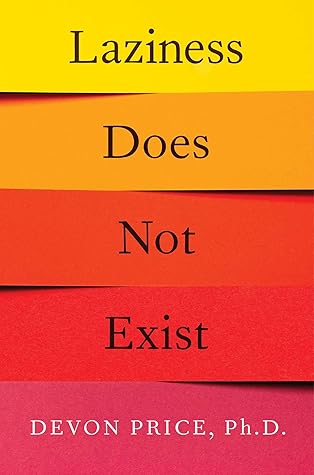More on this book
Community
Kindle Notes & Highlights
social media leaves you feeling as if you’re not enough, you can counteract it by avoiding comparisons with other people and seeking out the successful people who inspire you rather than make you feel bad.
There’s always someone doing better than we are in one way or another; if we constantly seek out people to unfavorably compare ourselves to, we’ll never feel like we’re enough.
Seek Inspiration, Not Shame
Fighting the Laziness Lie, after all, isn’t about abandoning all goals. It’s about connecting with the goals that truly light a fire inside us—and pursuing them in a healthy way.
Set Goals Based on Compassion, Not Guilt or Fear
can’t do everything, but I can help chip away at big problems by doing my own small part.
Conversely, when we turn our attention toward the small, local steps we can take to address the problem, we feel more in control of the situation, less anxious, and more motivated to keep up the fight.
Lacking compassion for a struggling group of people actually makes it harder for us to be gentle with ourselves.
Our culture’s hatred of the “lazy” is all-encompassing. It bleeds into how we view relationships, child-rearing, body size, barriers to voting, and so much more. The Laziness Lie teaches us that people who do more are worth more. When we buy into that method of assigning value to people, we doom ourselves to a life of insecurity and judgment.
If we really want to dismantle the Laziness Lie and set ourselves free, we have to question every judgment of “laziness” society has taught us to make, including those that are very challenging for us to unlearn. If you’re entitled to moments of rest, of imperfection, of laziness and sloth, then so are homeless people, and people with depression, and people who are addicted to drugs. If your life has value no matter how productive you are, so does every other human life.
Research shows that exercising curiosity is a fantastic way to unlearn our prejudices and biases.
As I’ve already outlined in this book, fighting against the Laziness Lie is particularly difficult when a person has been pushed to society’s margins. People of color and women are often expected to be unfailingly productive and uncomplaining, above and beyond the level white men are. People with mental illnesses and physical disabilities are shamed for having needs and limitations; looking after their health can be viewed by other people as an indulgence.
Stop Associating Productivity with Goodness
Question your root assumptions about which actions are “better” than others, and why.
The Laziness Lie is rooted in capitalism and a particularly harsh breed of Christianity, and it preaches that salvation comes from hard work.
When you get less done during the day than you anticipated, you feel guilty. You have trouble enjoying your free time. You believe you have to “earn” the right to a vacation or a break. You take care of your health only in order to remain productive. Having nothing to do makes you feel “useless.” You find the idea of growing old or becoming disabled to be incredibly depressing. When you say no to someone, you feel compelled to say yes to something else to “make up” for it.
wanted them to get comfortable with being less productive than society tells them they ought to be.
It’s wonderful to realize that all people are deserving of love and comfort, and that this worthiness has nothing to do with productivity.
I’m okay just as I am.
You’ll never be perfect, and that’s okay. You’re fine exactly the way you are. So is everyone else.


